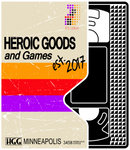
The Period Game is a board game designed to teach menstruation in a fun, engaging way. Games are for 2-5 players and take approx 20-30 minutes to play.
Each game comes with:
-
1 board that walks you through: puberty, the roughly four week cycle that periods occur on, different PMS symptoms, and different period flows
-
1 centerpiece inspired by the menstruating reproductive system. It drives gameplay and is responsible for your periods!
-
24 marbles that let you move forward, get your period and leak in the game
-
5 player pieces shaped like pads, tampons, menstrual cups, and period undies
-
11 PMS cards that teach you how to handle PMS in the game and in life
-
4 types of period protection cards (pads, tampons, super tampons, menstrual cups)
-
4 types of wild cards
-
1 educational booklet that explains a little more about the menstruating reproductive system and the things you learned in the game.
A 2017 study conducted by Betty For Schools showed that 76 percent of women ages 16-24 felt embarrassed when they learned about periods in school. We need to do better.
The Period Game is a fun, positive, learning experience that teaches participants about what is happening within menstruating bodies and how to “go with the flow.” It’s pretty much impossible to play the game without saying words like “period” and “tampon,” making it a lot easier to talk about both in real life, and empowering the next generation to stop hiding tampons in their sleeves.
Our mission is to make young people’s first experience with menstruation a positive one, to help demolish the period stigma before it even starts.
The Period Game started in 2014 as a college project by Daniela Gilsanz and Ryan Murphy while at the Rhode Island School. We were in a “Design and Play” class, and everyone was tasked with making a game about the body. Immediately, we jumped to a game about periods because we knew that redesigning an often uncomfortable educational experience through play would help create a safe space for young people to learn, ask questions, and develop a positive association with menstruation, all before the taboo could be instilled.
Initially our classmates were a little uncomfortable, which surprised us, as we were all in our 20s at art-school, but proved that there was still a long way to go in how we talk about periods. Watching our peers get more comfortable with the subject while playing the game clued us in that we were onto something.
After graduating, we began testing the game with hundreds of students of different backgrounds, as well as gynecologists, sex educators and puberty experts to great results. We saw young people of all genders loudly exclaim, “I got my period!” We watched as one student made up a period dance to celebrate each flow, while another finally understood PMS and what had been happening to her body. We had a nine-year-old try and buy it on the spot, and watched as students engaged in honest and open conversations about menstruation.




